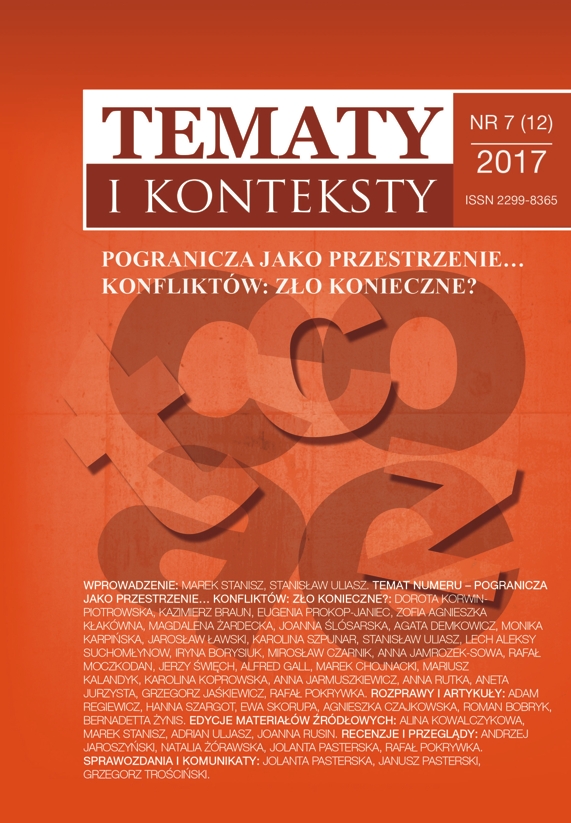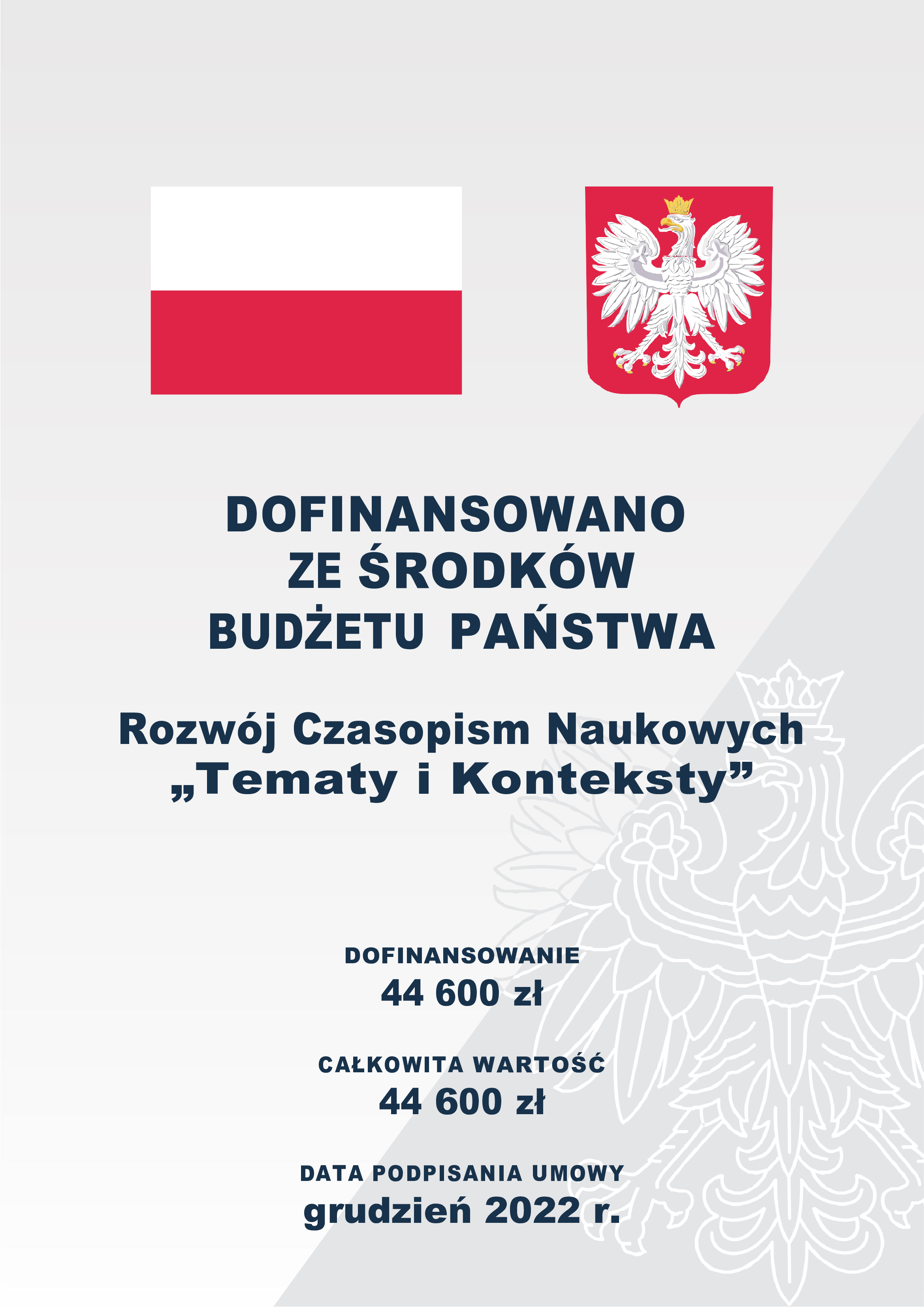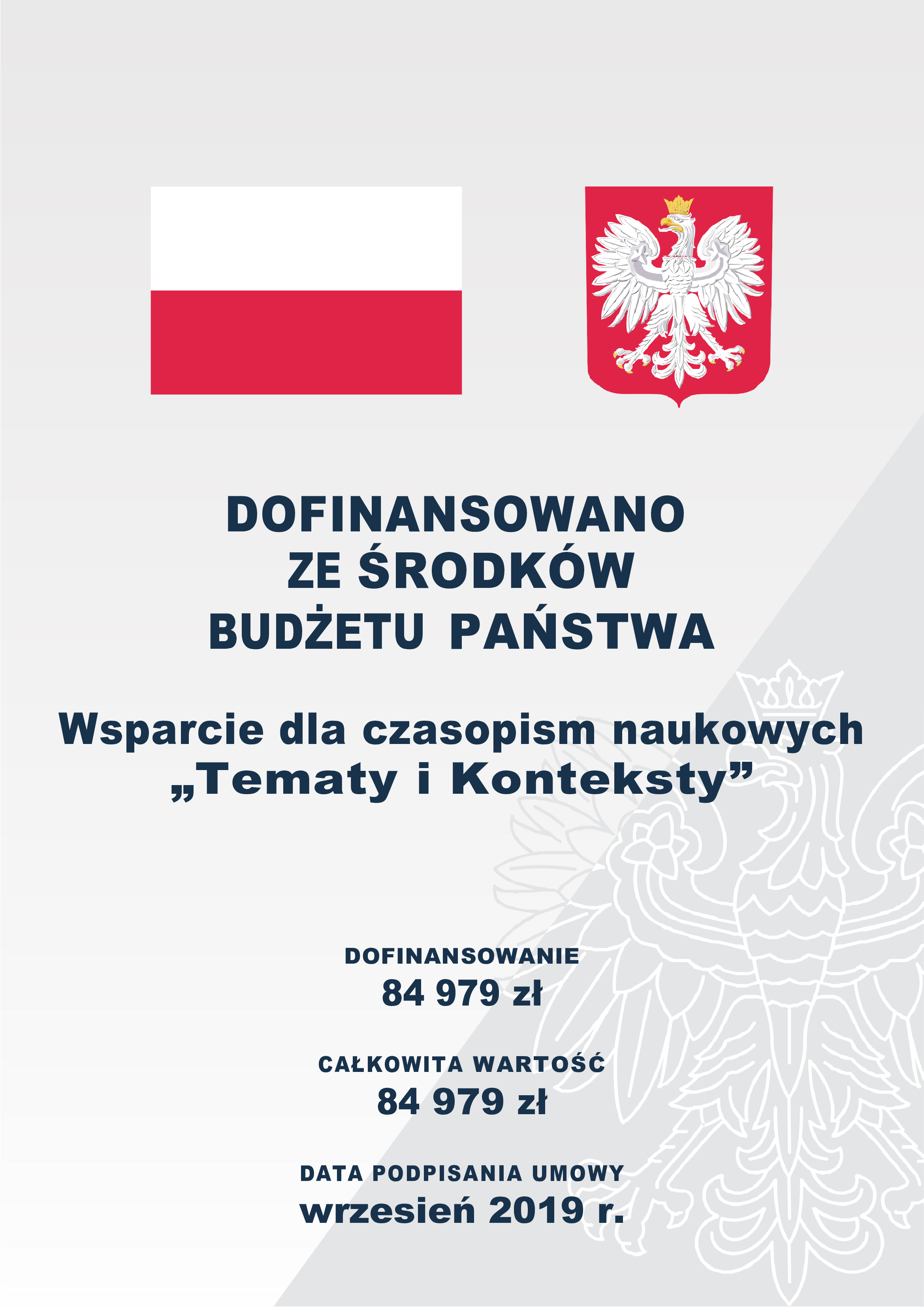On the Flexibility of Borders between Public Reason and Collective Ignorance
DOI:
https://doi.org/10.15584/tik.2017.6Słowa kluczowe:
rozum, niewiedza, demokracja liberalna, podstawy życia społecznego, PascalAbstrakt
The main theme of the paper is the issue of the foundations of social life. The author begins by outlining the tradition of the Enlightenment represented by Immanuel Kant, who attempted to justify rationally the basis of social life. Then she moves back to antiquity, to Plato, the sophists and Aristotle, to show their attitude towards the foundations of public life in order to briefly present in the following stage the original concept of Baruch Spinoza and, in more details, the views of Blaise Pascal, who is the main figure of this presentation. The final part of the paper includes a draft of the philosophical thought of postmodernism, represented by such intellectuals as Michel Foucault, Richard Rorty and Jürgen Habermas. The author additionally presents an exposition of the concept of habitus by Pierre Bourdieu, interpreting it accordingly to her previous reflections. The course of thought in these considerations intends to formulate a thesis which takes a stand against the most obvious opinion of Enlightenment, purporting that neither the contemporary liberal democracy nor people’s respect for it and their will to obey the law are founded on reason.
Downloads
Bibliografia
Arendt H., The Promise of Politics, ed. by Jerome Kohn, New York-Toronto: Random House 2005.
Bachelard G., The Formation of the Scientific Mind, transl. by Mary McAllester Jones, Manchester: Clinamen Press 2002.
Bourdieu P., L. J. D. Wacquant, An Invitation to Reflexive Sociology, Cambridge-Oxford: Polity Press 1992.
Elliott A., Contemporary Social Theory, Routledge 2009.
Gadamer H.-G., „Es ist mir recht unheimlich geworden”. Interview, Die Welt, 25.09.2001, https://www.welt.de/print-welt/article477725/Es-ist-mir-recht-unheimlich-geworden.html.
Herbert Z., “Potęga smaku”/„The Power of Taste”, transl. by John and Bogdana Carpenter, in: Z. Herbert, Selected Poetry, Wydawnictwo Literackie, Kraków 2000.
Kant I., Groundwork for the Metaphysics of Morals, ed. and transl. by Allen W. Wood, New Haven and London: Yale University Press 2002.
Kant I., Religion within the Boundaries of Mere Reason, ed. and transl. by Allen Wood and George di Giovanni, Cambridge: Cambridge University Press 2003.
Kolakowski L., The Presence of Myth, transl. by Adam Czerniawski, Chicago: The University of Chicago Press 2001.
Macedo S., Liberal Virtues. Citizenship. Virtue and Community in Liberal Constitutionalism, Oxford: Clarendon Press 1990.
Pascal B., Pensées, transl. W.F. Trotter, Mineola, NY: Dover Publications 2003.
Rawls J., Political Liberalism: Expanded Edition, New York: Columbia University Press 2005.
Ricoeur P., Oneself as Another, transl. by Kathleen Blamey, Chicago and London: University of Chicago Press 1992.
Rorty R., „The Priority of Democracy to Philosophy”, in: Merril D. Peterson, Robert C. Vaughlin, The Virginia Statute for Religious Freedom, Cambridge: Cambridge University Press 1988.
Sloterdijk P., Die Verachtung der Massen: Versuch über Kulturkämpfe in der modernen Gesellschaft, Frankfurt am Mein: Suhrkamp 2001.
Sloterdijk P., Was geschah im 20. Jahrhundert, Berlin: Suhrkamp Verlag 2016, p. 93-136.
Spinoza B., Theological-Political Treatise, ed. by Jonathan Israel, transl. by Michael Silverthorne and Jonathan Israel, Cambridge: Cambridge University Press 2007.
Pobrania
Opublikowane
Jak cytować
Numer
Dział
Licencja
Prawa autorskie (c) 2017 Tematy i Konteksty

Utwór dostępny jest na licencji Creative Commons Uznanie autorstwa – Użycie niekomercyjne – Bez utworów zależnych 4.0 Międzynarodowe.




